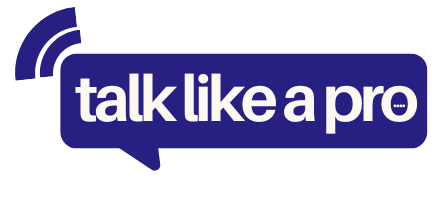Ahoy, attention seekers and social media mavens! Buckle up, because we’re about to dive headfirst into the murky waters of vaguebooking – that peculiar art of fishing for sympathy without actually spilling the tea.
Ever scrolled through your feed and stumbled upon a cryptic status update that left you scratching your head? Something like “Can’t believe this is happening…” or “Why do people have to be so cruel?”
Congratulations! You’ve just encountered a vaguebooker in their natural habitat.
Now, before you roll your eyes and keep scrolling, let’s take a moment to appreciate the delicate balance these social media ninjas are trying to strike.
They want attention (don’t we all?), but they don’t want to seem desperate. It’s like trying to eat a burrito without making a mess – theoretically possible, but oh so tricky to pull off.
As your friendly neighborhood communication coach, I’ve spent years observing these elusive creatures in the wild. And let me tell you, there’s more to vaguebooking than meets the eye.
So grab your favorite beverage, get comfy, and let’s unpack this fascinating phenomenon together. By the end of this article, you’ll be a certified vaguebooking expert – whether you want to master the art yourself or just understand why your aunt keeps posting about her “broken heart” without any context.
Ready to embark on this journey of subtle attention-seeking? Let’s dive in!
The Anatomy of a Perfect Vaguebook
Alright, aspiring vaguebookers, let’s break down the essential elements of a top-notch, attention-grabbing, yet frustratingly vague post.
The Emotional Hook
First things first, you need to tug at those heartstrings. Think of yourself as a fisherman, but instead of worms, you’re using pure, unadulterated emotion as bait.
Some classic examples:
– “I can’t believe this is happening…”
– “Why does life have to be so unfair?”
– “Feeling so lost right now.”
See what we did there? We’ve hinted at some deep, dark drama without actually revealing a single useful detail. It’s like serving someone an empty plate and calling it a gourmet meal. Bon appétit!
The Cliffhanger
Now that you’ve hooked ’em, it’s time to leave ’em hanging. Your goal is to create a mystery so intriguing that your friends can’t help but ask for more info.
Try something like:
– “I never thought it would end like this.”
– “Sometimes the people you trust the most…”
– “Big changes coming. Not sure how to feel.”
You’re basically the M. Night Shyamalan of Facebook statuses. What a twist!
The Subtle Plea for Attention
Here’s where it gets tricky. You want people to comfort you, but you can’t outright ask for it. That would be too… obvious. Instead, try these on for size:
- “I guess this is what I get for trying.”
- “Wondering if anyone else feels this way…”
- “Is it just me, or…?”
It’s like putting out a plate of cookies and then acting surprised when people want to eat them. “Oh, these old things? I didn’t even realize they were there!”
The Psychology Behind Vaguebooking
Now that we’ve dissected the anatomy of a vaguebook post, let’s dive into the juicy stuff – the “why” behind this peculiar behavior.
Attention: The Ultimate Currency
In the grand bazaar of social media, attention is the coin of the realm. And let’s face it, we’re all a bunch of attention merchants trying to hawk our wares.
Vaguebooking is like setting up a mysterious stall with a “Free Samples” sign, but when people come to check it out, all they find is an empty table and a cryptic note. Frustrating? Yes. But effective at drawing a crowd? You betcha.
The Validation Vortex
Here’s a little secret: vaguebooking isn’t just about attention. It’s about validation. It’s that warm, fuzzy feeling you get when 50 of your closest acquaintances rush to your aid, showering you with “Are you okay?” and “DM me if you need to talk!”
It’s like getting a group hug from the internet. Who wouldn’t want that?
The Fear of Oversharing
But why not just spill the beans and tell everyone what’s actually going on? Well, my dear reader, that’s where the fear of oversharing comes in.
In a world where your third-grade teacher and your boss can both see your posts, sometimes it feels safer to hint at drama rather than lay it all out there.
It’s like wearing a mask to a party – you get to be mysterious and intriguing without the risk of anyone seeing your spinach-covered teeth.
The Pros and Cons of Vaguebooking
Like any art form, vaguebooking has its upsides and downsides. Let’s break ’em down, shall we?
Pros:
-
Attention on Tap: Need a quick hit of sympathy? Vaguebooking’s got you covered faster than you can say “feeling blue.”
-
Mystery Maintenance: Keep ’em guessing! Nothing says “interesting person” quite like a constant air of intrigue.
-
Emotional Support Without the Mess: Get all the comfort without having to actually explain your problems. It’s like emotional takeout!
-
Drama Control: You get to hint at your issues without risking the fallout of airing your dirty laundry in public.
Cons:
-
The Boy Who Cried Wolf Effect: Vaguebook too often, and people might start ignoring your posts faster than you can say “Just another Tuesday…”
-
Frustration Nation: Your friends might get annoyed with your cryptic posts. And let’s face it, an annoyed friend is about as useful as a chocolate teapot.
-
Miscommunication Station: Without context, people might assume the worst. Your “feeling down” could turn into “OMG, are they okay?!” real quick.
-
The Attention Addiction: Like any good drug, the validation high from vaguebooking can be addictive. Before you know it, you’re posting “Having thoughts…” at 3 AM on a Tuesday.
Vaguebooking: A Field Guide to Common Species
Just as bird watchers have their guides to identify various feathered friends, we too can categorize the different types of vaguebookers in their natural habitat. Let’s take a safari through the wilds of social media, shall we?
The Cryptic Poet
This species is known for its lyrical, yet utterly confusing posts. Often spotted in the late hours, possibly after a glass of wine or two.
Typical call: “Shadows dance on walls of deceit, as trust crumbles like autumn leaves.”
Translation: “Someone did something that upset me, but I’m too dramatic to just say that.”
The Passive-Aggressive Prowler
This cunning creature uses vaguebooking as a weapon, often to call out unnamed individuals who have wronged them.
Typical call: “Some people really show their true colors when you need them most. SMH.”
Translation: “Karen didn’t like my Instagram post and I’m unreasonably upset about it.”
The Humble Bragger
A master of misdirection, this species uses vagueness to draw attention to their accomplishments without seeming boastful.
Typical call: “Can’t believe this is happening! Pinch me, I must be dreaming!”
Translation: “I got a promotion/won an award/bought a house but I want you to ask me about it so I don’t seem like I’m bragging.”
The Chronic Worrier
This anxious creature uses vaguebooking as a coping mechanism, seeking reassurance without divulging specifics.
Typical call: “Has anyone else ever felt like everything is falling apart? Asking for a friend…”
Translation: “I’m stressed about something but I don’t want to burden you with details unless you explicitly ask.”
The Cliffhanger King/Queen
This species thrives on suspense, dropping vague hints about future events to keep their audience on the edge of their seats.
Typical call: “Big news coming soon! Can’t wait to share!”
Translation: “I have some mildly interesting news but I’m going to drag it out for maximum attention.”
The Vaguebooker’s Toolkit: Essential Phrases and Techniques
Every artist needs their tools, and vaguebookers are no exception. Let’s stock up your linguistic palette with some classic vaguebooking phrases and techniques.
The Ellipsis Master
The humble ellipsis (…) is the vaguebooker’s best friend. It leaves things hanging, inviting curiosity. Use it liberally!
- “Well, that didn’t go as planned…”
- “Some people never change…”
- “Life is full of surprises…”
The Rhetorical Question Roulette
Nothing says “pay attention to me” quite like a series of unanswered questions.
- “Why do these things always happen to me?”
- “Is it too much to ask for a little kindness?”
- “When will I learn?”
The Cryptic Quote Connoisseur
Why use your own words when you can borrow someone else’s? Bonus points if the quote is vague enough to apply to literally any situation.
- “‘The darkest hour is just before the dawn.’ – feeling this right now.”
- “‘Not all those who wander are lost.’ But maybe I am?”
- “‘To be or not to be?’ That is indeed the question.”
The Emoji Enigma
Sometimes, a picture is worth a thousand vague words. String together some emojis for maximum confusion.
- “🌧️💔🍷” (Sad, heartbroken, drinking wine?)
- “🚪🚶♀️💨” (Leaving? Running away? Breaking wind?)
- “🎭🔪🌈” (A very confusing day at the theater?)
The Subtle Song Lyric
Drop a line from a song that hints at your emotional state without giving anything away.
- “🎵 Hello darkness, my old friend… 🎵”
- “🎵 I will survive… 🎵”
- “🎵 It’s the end of the world as we know it 🎵”
The Vaguebooker’s Code of Ethics
Now, before you go off and start vaguebooking willy-nilly, let’s establish some ground rules. Even in the wild west of social media, there’s got to be some law and order, right?
Rule #1: Thou Shalt Not Cry Wolf
Save your vaguebooking for when you genuinely need support. If every other status is a cryptic cry for help, people will start scrolling past faster than you can say “feeling blue.”
Rule #2: Respect the Follow-Up
If someone takes the bait and asks if you’re okay, have the decency to respond. Even if it’s just to say, “I’d rather not talk about it.” Leaving them on read is like inviting someone to dinner and then not opening the door.
Rule #3: Keep It Light (Most of the Time)
Vaguebooking about a bad hair day? Fine. Hinting at serious mental health issues or life-threatening situations? Not cool. Some things require clear communication, folks.
Rule #4: No Naming and Shaming
Your vaguebook post shouldn’t be a thinly veiled attempt to call someone out. If you’ve got beef with Karen from accounting, deal with it directly. Don’t make your whole friend list play detective.
Rule #5: The 24-Hour Rule
Before you hit post on that vague status, wait 24 hours. If you still feel the need to share after a day, go for it. You’d be surprised how many “end of the world” feelings pass after a good night’s sleep and a cup of coffee.
The Art of Decoding Vaguebooks: A Reader’s Guide
So, you’ve mastered the art of vaguebooking. But what about when you’re on the receiving end? Fear not, dear reader. I present to you the official “Vaguebook Decoder Ring.” (Patent pending)
Step 1: Assess the Source
Is this person a chronic vaguebooker or is this out of character for them? If it’s rare, it might be worth taking seriously.
Step 2: Check the Time
Late-night posts are more likely to be fueled by temporary emotions (or wine). Mid-day crisis posts? Might be more legit.
Step 3: Look for Patterns
Has this person been posting a lot about relationship troubles lately? Work stress? Their pet iguana’s digestive issues? Context clues can help you crack the code.
Step 4: Engage… or Don’t
If you’re genuinely concerned, reach out. But remember, you’re not obligated to play detective every time someone posts “Sigh…”
Step 5: When in Doubt, Send a Meme
Can’t figure out if they’re having a real crisis or just fishing for likes? A funny meme is always a safe bet. Worst case scenario, you’ve brightened their day a little.
The Future of Vaguebooking: Trends and Predictions
As we wrap up our deep dive into the world of vaguebooking, let’s gaze into our crystal ball and see what the future holds for this peculiar art form.
The Rise of Multi-Platform Vaguebooking
Why limit your cryptic musings to just one social media platform? Expect to see coordinated vaguebooking campaigns across Facebook, Twitter, Instagram, and maybe even LinkedIn. (Because nothing says “professional” quite like “Feeling lost in the corporate jungle…”)
AI-Generated Vaguebooks
In a world where AI can write poetry and news articles, can AI-generated vague statuses be far behind? Imagine an app that creates the perfect vaguebook post based on your mood and the level of attention you’re craving.
Virtual Reality Vaguebooking
Picture this: instead of just reading “Feeling blue…”, you can step into a VR world that represents your friend’s emotional state. Is it a stormy sea? A dark forest? A room full of sad clowns? The possibilities are endless!
The Vaguebook Backlash
As with all trends, there might come a point where people get fed up with the vagueness. We might see a rise in “anti-vaguebook” posts, where people share every excruciating detail of their day. (“8:05 AM: Stubbed my toe. 8:07 AM: Burnt my tongue on coffee…”)
Vaguebooking as an Art Form
Who knows? Maybe in a few years, we’ll see the first museum exhibition dedicated to the art of vaguebooking. “Untitled Emotional State #5” could be hanging in the Louvre!
And there you have it, folks! You’re now officially fluent in the language of vaguebooking. Whether you choose to use this power for good or for mischief is entirely up to you.
Remember, with great vagueness comes great responsibility. Use it wisely, use it sparingly, and for the love of all that is holy, please don’t make your friends and family play “Guess What’s Wrong” every single day.
Now if you’ll excuse me, I have some vague and mysterious business to attend to. Or do I? I guess you’ll never know…
(See what I did there? That’s advanced level vaguebooking, kids. Don’t try this at home without proper training and safety equipment.)
Stay vague, my friends!




